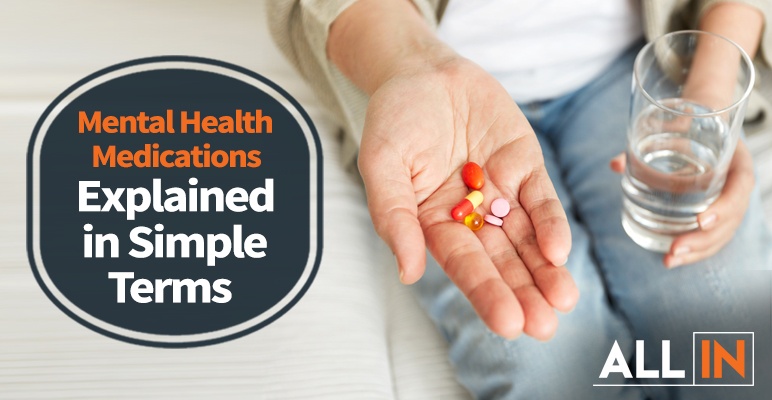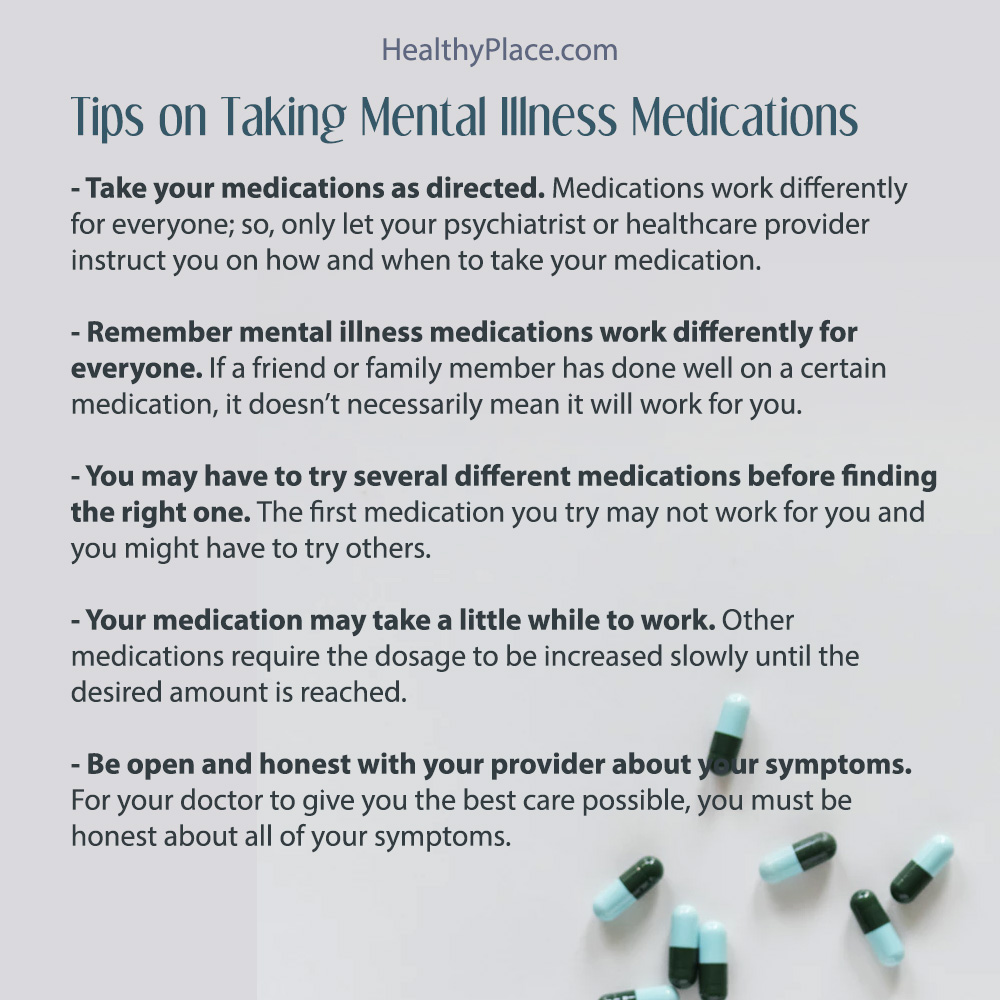Why Would You Need Medication for Mental Health?
Why would you need medication for a mental health issue? This question touches on a crucial aspect of mental healthcare: understanding when medication is necessary and how it works in conjunction with other treatments. Many mental health conditions, like depression and anxiety, stem from complex interactions of biological factors, including neurochemical imbalances. Medication can help correct these imbalances, alleviating symptoms and improving overall well-being.
However, it’s vital to remember that medication is often most effective when part of a broader treatment plan, which may also include therapy and lifestyle changes.
This exploration will delve into the science behind mental illness, examine various medication types and their effects, and address common misconceptions surrounding their use. We’ll discuss scenarios where medication proves invaluable, emphasizing the importance of personalized treatment plans and the collaborative relationship between patients and healthcare professionals. Ultimately, the goal is to provide a clearer understanding of when and why medication might be a beneficial part of your journey to better mental health.
Understanding Mental Health Conditions

Mental health conditions are complex, stemming from a combination of genetic, biological, psychological, and environmental factors. Understanding their biological basis is crucial for effective treatment.
Biological Basis of Common Mental Health Conditions
Many mental health conditions, such as depression and anxiety, involve imbalances in brain neurotransmitters. Depression, for example, is often associated with lower levels of serotonin, norepinephrine, and dopamine. Anxiety disorders, on the other hand, can involve dysregulation of the neurotransmitter GABA, which plays a role in calming the nervous system. Structural and functional differences in brain regions have also been observed in individuals with various mental illnesses.
Neurochemical Imbalances and Mental Illness
Specific neurochemical imbalances are linked to different mental illnesses. For instance, schizophrenia is often associated with an excess of dopamine in certain brain areas, while obsessive-compulsive disorder (OCD) may involve dysfunction in the serotonin and glutamate systems. These imbalances disrupt normal brain function, leading to the characteristic symptoms of each disorder.
Mental health is a growing concern globally, and understanding the prevalence of disorders is crucial. A recent world health organization study on mental disorders by country highlights the need for accessible resources. For young people facing trauma, finding coping mechanisms is especially important. This is where practices like yoga can be beneficial, and thankfully there are resources available such as yoga for youth who have experienced trauma mental health counselor programs that offer support and guidance.
Types of Mental Health Disorders and Their Symptoms
A wide range of mental health disorders exist, each with its own unique set of symptoms. These include mood disorders (like depression and bipolar disorder), anxiety disorders (such as generalized anxiety disorder, panic disorder, and social anxiety disorder), psychotic disorders (including schizophrenia and delusional disorder), and personality disorders. Symptoms can vary greatly in severity and presentation, making accurate diagnosis essential.
The Role of Medication in Treatment
Medication plays a vital role in treating many mental health conditions by targeting the underlying neurochemical imbalances. It’s important to remember that medication is often most effective when used in conjunction with other therapies.
Mechanisms of Action of Psychiatric Medications
Different types of psychiatric medications work through various mechanisms. Antidepressants, for instance, may increase the availability of serotonin, norepinephrine, or dopamine in the brain. Anxiolytics, or anti-anxiety medications, can enhance the effects of GABA, reducing anxiety symptoms. Antipsychotics work primarily by blocking dopamine receptors, which can help manage psychosis.
Types of Psychiatric Medications and Their Effects
Several classes of psychiatric medications exist, including antidepressants (SSRIs, SNRIs, tricyclics, MAOIs), anti-anxiety medications (benzodiazepines, buspirone), antipsychotics (typical and atypical), mood stabilizers (lithium, valproate), and others. Each medication has its own specific mechanism of action, potential benefits, and side effects. The choice of medication depends on the individual’s specific diagnosis, symptoms, and medical history.
Potential Side Effects and Risks of Medication
It’s crucial to be aware of the potential side effects associated with psychiatric medications. These can vary widely depending on the specific medication and individual, but common side effects might include weight changes, sleep disturbances, sexual dysfunction, and gastrointestinal issues. Serious side effects are less common but possible and require immediate medical attention.
When Medication is Necessary
Medication is not always necessary for treating mental health conditions. However, in certain situations, it becomes the most effective or even essential part of the treatment plan.
Situations Where Medication is Most Effective
Medication is often the most effective treatment option for severe mental health conditions, such as severe depression with suicidal ideation, psychotic disorders, or bipolar disorder experiencing manic episodes. In these cases, medication can help stabilize symptoms and prevent crises.
Cases Where Therapy Alone May Be Insufficient
Therapy alone may not be sufficient for individuals experiencing severe symptoms that significantly impair their daily functioning. For example, someone with severe anxiety that prevents them from leaving their home might benefit greatly from medication to reduce their anxiety levels before engaging in therapy.
Medication in Severe Mental Health Crises
In severe mental health crises, such as a psychotic break or a severe depressive episode with suicidal thoughts, medication can be life-saving. It can rapidly stabilize symptoms and reduce the risk of harm, allowing the individual to begin engaging in other forms of treatment, such as therapy.
Medication and Therapy: A Combined Approach
A holistic approach to mental health treatment, combining medication and therapy, often yields the best results. This integrated approach addresses both the biological and psychological aspects of the condition.
Importance of a Holistic Approach
A holistic approach considers the individual’s unique needs and circumstances. It recognizes that mental health conditions are complex and often require a multifaceted approach that addresses various factors contributing to the condition. Medication can help manage symptoms, while therapy provides tools and strategies for coping and managing the condition long-term.
How Medication Enhances Therapy
Medication can help stabilize symptoms, making it easier for individuals to engage in therapy and benefit from it. For example, someone with severe depression might find it difficult to focus and participate in therapy sessions. Medication can help alleviate these symptoms, allowing them to actively participate and benefit from the therapeutic process.
Mental health is a growing concern globally, as highlighted by a recent world health organization study on mental disorders by country , which reveals significant variations in prevalence across different nations. This underscores the need for accessible and effective support systems. For young people grappling with trauma, innovative approaches are crucial. One promising method is therapeutic yoga, and you can find more information about this on the program described at yoga for youth who have experienced trauma mental health counselor.
Early intervention and holistic care are key to improving mental well-being.
Examples of Successful Combined Treatment Plans

A successful combined treatment plan might involve an antidepressant for depression, combined with cognitive behavioral therapy (CBT) to address negative thought patterns and behaviors. For anxiety disorders, a combination of anxiolytics and exposure therapy can be highly effective. The specific combination will depend on the individual’s diagnosis and needs.
Addressing Misconceptions about Medication: Why Would You Need Medication For A Mental Health Issue
Many misconceptions surround mental health medication, which can prevent individuals from seeking help. Addressing these misconceptions is crucial for promoting help-seeking behaviors.
Common Misconceptions about Mental Health Medication
- Medication is a sign of weakness.
- Medication is addictive.
- Medication will change your personality.
- Medication is a quick fix.
- Medication is not effective.
How Misconceptions Hinder Help-Seeking
These misconceptions can lead individuals to delay or avoid seeking professional help, worsening their symptoms and potentially leading to more severe consequences. The stigma associated with mental illness and medication can be a significant barrier to treatment.
Refuting Myths about Medication Dependency and Long-Term Use
Many psychiatric medications are not addictive in the same way as substances like opioids. While some medications may require gradual tapering off to avoid withdrawal symptoms, this does not equate to addiction. Long-term use of medication is sometimes necessary to manage chronic mental health conditions, just as individuals with chronic physical conditions may require long-term medication.
The Individualized Nature of Treatment
Mental health treatment should always be personalized to meet the individual’s unique needs and circumstances. A one-size-fits-all approach is ineffective.
Importance of Personalized Treatment Plans
Healthcare professionals consider various factors when developing a personalized treatment plan, including the individual’s diagnosis, symptom severity, medical history, personal preferences, and lifestyle. This ensures that the treatment is tailored to the individual’s specific needs and maximizes the chances of success.
Factors Considered When Prescribing Medication
Factors considered include the individual’s age, other medical conditions, potential drug interactions, and response to previous treatments. The healthcare professional will work closely with the individual to determine the most appropriate medication and dosage.
Considerations for Individuals with Co-occurring Conditions
Individuals with co-occurring mental and physical health conditions require careful consideration. The healthcare professional must coordinate treatment to ensure that the medications for both conditions are compatible and do not interact negatively.
Navigating the Process of Seeking Help
Seeking professional help for a mental health condition can feel daunting, but it’s a crucial step towards recovery. Understanding the process can make it less overwhelming.
Steps Involved in Seeking Professional Help
The process typically begins with contacting a primary care physician or a mental health professional. The professional will conduct an assessment, potentially refer to a specialist, and develop a treatment plan. This may involve medication, therapy, or a combination of both.
Resources Available for Individuals Seeking Mental Health Treatment
Numerous resources are available, including therapists, psychiatrists, psychologists, support groups, and online resources. Many insurance plans cover mental health services, and there are also organizations that provide low-cost or free mental health services.
Discussing Medication Options with a Healthcare Professional
When discussing medication options, it’s important to be open and honest with your healthcare professional about your symptoms, medical history, and concerns. Ask questions about the medication’s mechanism of action, potential side effects, and long-term implications. A collaborative approach is essential for successful treatment.
Maintaining Mental Wellness Beyond Medication
Medication can be a powerful tool in managing mental health conditions, but it’s not a standalone solution. A holistic approach to mental wellness incorporates lifestyle factors and self-care strategies.
Lifestyle Factors Contributing to Mental Well-being
Regular exercise, a balanced diet, sufficient sleep, and stress management techniques can significantly contribute to overall mental well-being. These lifestyle factors support brain health and resilience.
Importance of Self-Care Strategies, Why would you need medication for a mental health issue
Self-care strategies, such as mindfulness practices, relaxation techniques, and engaging in enjoyable activities, can help manage stress, improve mood, and promote overall mental well-being. These strategies are essential for long-term mental health management.
Role of Support Systems in Maintaining Mental Wellness
Strong social support networks, including family, friends, and support groups, play a vital role in maintaining mental wellness. These networks provide emotional support, encouragement, and a sense of belonging, which can be crucial for navigating challenges and maintaining mental health.
Ultimately, the decision to use medication for a mental health issue is a deeply personal one, made in consultation with a healthcare professional. While medication can be a powerful tool for managing symptoms and improving quality of life, it’s not a one-size-fits-all solution. A holistic approach, encompassing medication, therapy, lifestyle adjustments, and a strong support system, often yields the best results.
Understanding the science behind mental illness, dispelling common myths, and engaging in open communication with your doctor are key steps in navigating this important aspect of mental healthcare.
Share this content:
